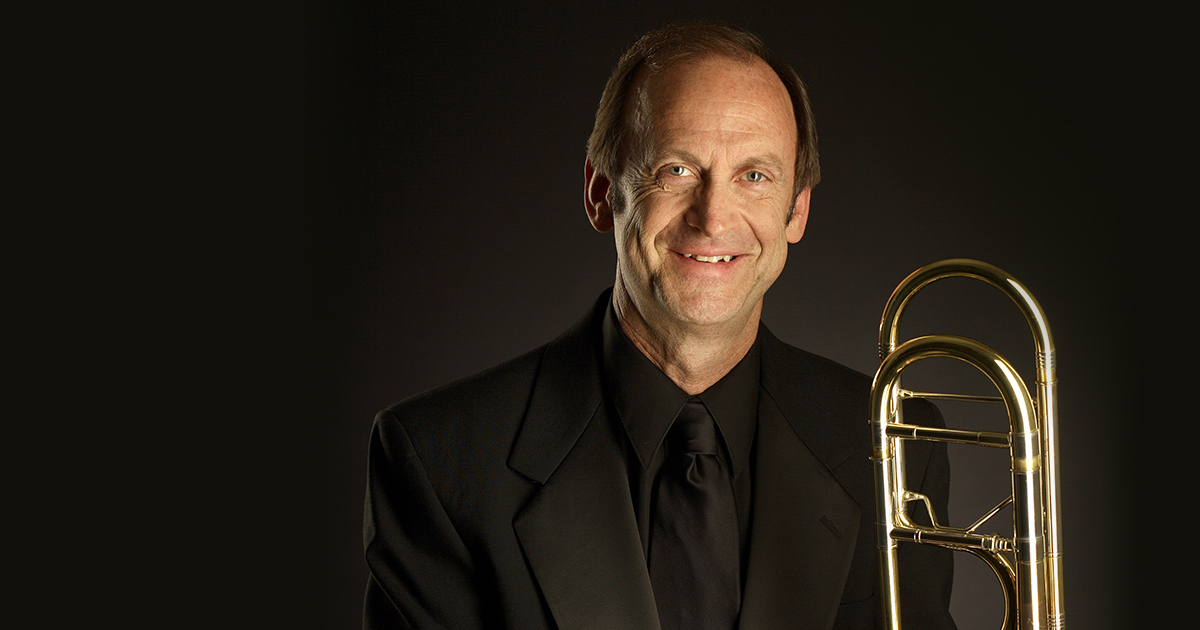A slightly odd programme, this. An intriguing new concerto from a senior Australian composer sandwiched between a 20th-century backward glancing Russian symphony and a suite from a 19th-century forward-thinking German opera. Not only that, unconventionally the symphony came first, the overture last and the concerto in the second half. Topsy-turvy it may have been, but thanks to a keen-eared conductor and an orchestra on top form, it held the attention throughout, though perhaps the sum of its parts was greater than the whole.
Rachmaninov’s Third Symphony may have been a flop in 1936, but on reflection today it looks very much like his finest essay in the form. A pity, as its lukewarm reception probably put the kibosh on the neurotic composer’s appetite to try his hand at a Fourth. With its big, romantic tunes and lush scoring, it feels as much of a pitch to Hollywood as anything else (though you can’t imagine MGM waiting for the notoriously glacial Rachmaninov to deliver a movie score). British conductor Mark Wigglesworth provided the ideal blend of precision in the complex opening exchange of themes and willingness to relax into the grand, swoony second subject. Channelling his inner romantic, he brought a bosom-heaving warmth to Rachmaninov’s repeated ritardandos and the Sydney Symphony Orchestra responded with singing strings, plangent woodwind and heroic brass – in short, a big Technicolor sound.
 Michael Mulcahy, trombone soloist in Carl Vine’s Five Hallucinations
Michael Mulcahy, trombone soloist in Carl Vine’s Five Hallucinations
Wigglesworth was adept, too, in bringing out the Tchaikovskian darkness in the more brooding sections, while ensuring that the more delicate orchestrational touches were given plenty of room to shine – harp, flute and celeste were especially magical in the ensuing Adagio. The mercurial scherzo-cum-military march brought urgent, yet shapely phrasing, while one of the finest tam-tam thwacks I’ve heard in a long time revealed Wigglesworth to be a man unafraid to look encouragingly at the percussion.
The cinematic feel continued into the finale, laden as it is with almost too many ideas. With plenty of swash in their buckle, the SSO shone brightly here, yet had the necessary discipline to finesse the spitfire fugue, taken at quite a lick by Wigglesworth. Great playing, and great conducting made this Rach Three at least the equal of the LSO and Gergiev’s excellent performance in the same hall back in 2014.
With 11 concertos under his belt, Carl Vine clearly has form in the form, however his unconventionally structured trombone concerto, going under the intriguing name of Five Hallucinations, proves he still has plenty of originality up his sleeve. Based on conditions and symptoms identified by the late neurologist Oliver Sacks, it was written for Australian trombonist Michael Mulcahy, for nearly 30 years now a player with the Chicago Symphony orchestra who co-commissioned the work.
Trombone concertos are still pretty rare, and Vine presents Mulcahy with a series of grand opportunities to neatly contrast his unique timbrel registers with his near neighbours (tuba and horns), while also exploring the higher, more lyrical side of the instrument, one that is less often on display in conventional works. Beautifully orchestrated, with prominent harps, woodwind and a varied precision section, the trombone also led the listener, promenade-like, from one movement to the next.
Vine has written on the piece for Limelight, so I’ll not describe the thinking behind each movement. The musical ideas are so interesting, however, it’s worth commenting on each. Opening in a Mahlerian world of nachtmusik (echoes of the trombone-led Seventh Symphony), the first movement, I smell the unicorn, captures the elusive world between waking and sleep, the trombone floating his occasionally picked-up phrases over a scintillating bed of shifting strings. The lemonade speaks weaves a glittering, effervescent haze over which the trombone chatters away as if intoxicated by the bubbly accompaniment.
With its brooding and insistent bass drum, Mama wants some cookies enters a dark, obsessive realm, the soloist’s phrases driving across the increasingly manic rhythms in the orchestra. The Doppelgänger uses echo effects on muted horns and winds in a desperate musical game of Simon Says, as the trombone is hounded and pursued in a nightmarish whirl of sound. Rapid, repeating patterns in and out of synch with the trombone – frequently using sets of six by four – typify the trippy finale, Hexagons in pink. A nifty duet for trombone and timpani precedes a triumphant finished laced with glittering percussion.
It might sound episodic, but Five Hallucinations hangs together remarkably well thanks to Vine’s overarching vision and skill in binding his orchestra tightly together, while allowing the soloist free rein to range far and wide through the neurological landscapes. Well-played and sensitively conducted, this is a major addition to the relatively tiny trombone and orchestra rep that deserves to be picked up by any aspiring soloist.
After that, fillets of Wagner did seem a little incongruous. Fortunately, Meistersinger is the opera best suited to excerpting, and Wigglesworth’s decision to open with part of the Act III Prelude and conclude with the grand finish to the concert-ended overture was as good a way as any to put together a cohesive suite. The strings were especially fine in the brooding atmosphere of “Wahn, wahn” that opens the final act of the opera. Wigglesworth captured well the dreamlike translucency here, transitioning nicely into the “Eva in Paradise” theme. A shift of gear into a fast-paced Waltz of the Apprentices – Wigglesworth nippier than many here – was followed by a clever sidestep into the Act I Prelude. A fine performance was marred in the final pages by a balance issue that saw strings overwhelmed by brass. A case of too much too soon deprived us of the long build through to the final bar.
Another fine Meet the Music concert was well attended by an attentive audience whose average age must have been around 20. Well worth catching for Wigglesworth, Rachmaninov, Mulcahy and Vine.












Comments
Log in to join the conversation.